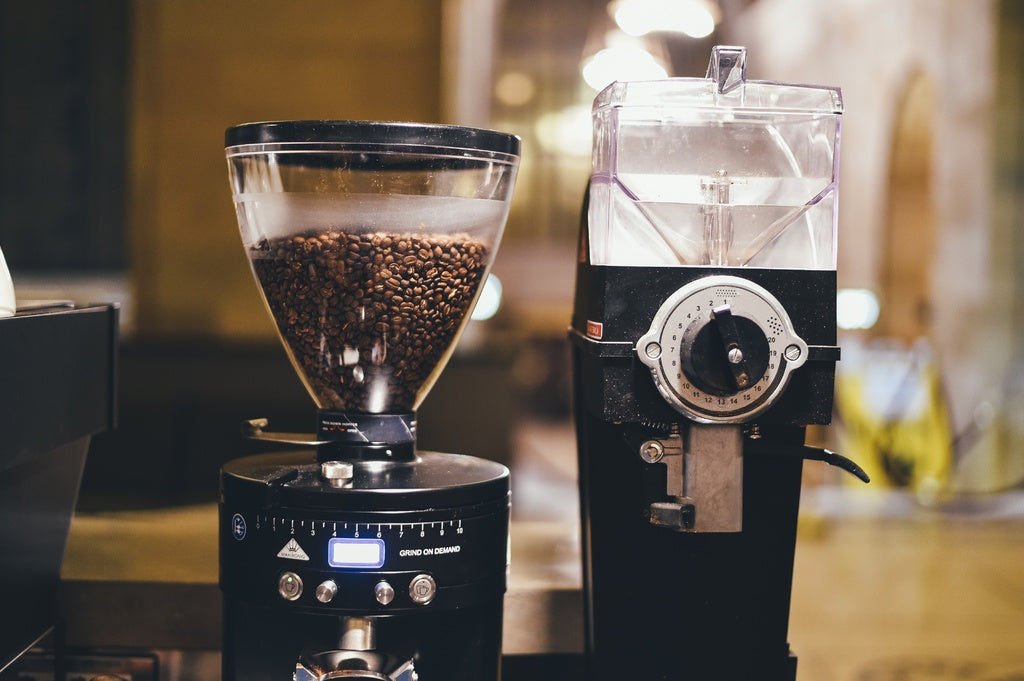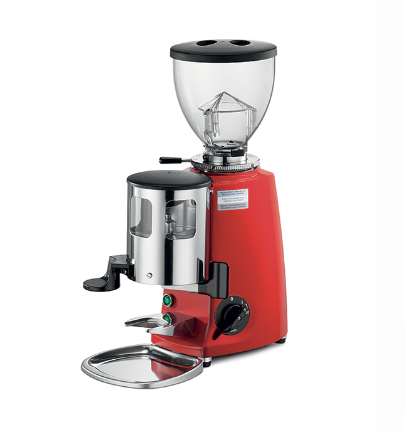Industrial Coffee Grinder: Essential for Coffee Houses and Cafés
Industrial Coffee Grinder: Essential for Coffee Houses and Cafés
Blog Article
Just How to Select the Perfect Industrial Coffee Mill for Your Service
Choosing the ideal industrial coffee grinder for your organization is a multifaceted decision that needs cautious factor to consider of several vital variables. Additionally, understanding the different kinds of mills readily available can significantly influence your operational effectiveness.
Assess Your Grinding Requirements
When selecting a commercial coffee mill, one should initially analyze their grinding demands to guarantee ideal efficiency and uniformity. This preliminary analysis entails comprehending the quantity of coffee to be processed daily, in addition to the preferred grind size for different brewing techniques. A high-capacity grinder may be required for companies serving large quantities of coffee, while smaller procedures could locate an extra portable design adequate.
Moreover, it is necessary to take into consideration the sorts of coffee beans being utilized, as different beans may call for details grinding strategies to accomplish the very best flavor account. As an example, oily beans may necessitate a grinder made to take care of such attributes without overheating or clumping.
Specialized coffee organizations typically require precise grind dimensions to enhance extraction and taste, making it essential to choose a grinder that can supply consistent results. Assessing the readily available room and electrical demands will certainly aid in selecting a grinder that fits effortlessly right into your operational process.
Understand Mill Kind
Comprehending the numerous kinds of industrial coffee mills is essential for making a notified selection that satisfies specific operational needs. There are mainly 2 classifications of mills: blade grinders and burr grinders.
Blade mills utilize rotating blades to chop the coffee beans, resulting in an inconsistent work size - Industrial Coffee Grinder. While they might be a lot more affordable, they are often not appropriate for industrial applications where accuracy is vital
On the various other hand, burr mills supply a much more consistent grind by crushing the beans in between 2 surface areas. They can be more classified right into level burr and conelike burr mills. Flat burr mills use a consistent grind size and are normally favored for coffee prep work, while cone-shaped burr grinders are versatile and can handle a range of mixture methods, from espresso to French press.
When picking a mill, think about the particular needs of your organization, consisting of preferred grind consistency, manufacturing volume, and the kinds of coffee drinks you prepare to provide - Industrial Coffee Grinder. Each grinder kind has its constraints and advantages, so understanding these subtleties allows informed decision-making that straightens with functional goals
Evaluate Work Size Uniformity
Accomplishing grind dimension consistency is crucial for creating premium coffee, as variations in fragment size can significantly influence extraction and taste. When selecting a commercial coffee grinder, it is crucial to examine how well the equipment maintains harmony in grind dimension throughout different sets. Inconsistent work dimensions can result in irregular extraction, causing a cup that might taste overly bitter or weak.
To assess grind dimension consistency, think about mills with features such as flexible work settings and top notch burrs. Burr grinders, in specific, master producing consistent fragment sizes compared to blade mills. The product and shape this website of the burrs play an important duty, with stainless steel and ceramic choices offering longevity and precision.

Think About Manufacturing Ability
In the busy globe of coffee production, considering production capability is vital for services intending to fulfill need without giving up top quality. The manufacturing ability of a commercial coffee mill straight influences a business's capability to satisfy orders effectively, handle stock, and reply to varying market trends.
When evaluating production capacity, it is important to evaluate the grinder's result price, normally determined in pounds per hour. This measurement needs to align with your company's forecasted sales volume and development targets. A café with a high turnover might need a grinder that can refine a number of hundred pounds daily, while a smaller sized operation could be sufficient with a lower ability design.
Additionally, take into consideration the kind of coffee being processed. Various beans and blends may influence grinding speed and efficiency, demanding a grinder qualified of dealing with diverse manufacturing needs. It's additionally worth factoring in the mill's capability to maintain constant quality under high result conditions, as any kind of changes can influence the final item.
Ultimately, picking a grinder that matches your service's production capability will ensure you continue to be competitive and receptive to consumer expectations.

Budget Plan and Maintenance Factors
When evaluating the best commercial coffee mill, maintenance and budget factors play a significant role in the total decision-making procedure,. An initial investment in a top quality mill can generate lasting advantages, yet it's necessary to develop a clear budget plan that straightens with your organization's operational needs. Consider both the purchase cost and prospective functional expenses, such as power usage and substitute components.
Industrial coffee grinders call for normal upkeep to guarantee optimal efficiency and durability. Assess the manufacturer's referrals for upkeep, including cleansing timetables and parts replacement, as these will certainly impact long-term functional expenses.

Purchasing a mill that is resilient yet very easy to preserve can conserve money with time. While lower-priced choices might be appealing, they might incur greater maintenance prices and decreased performance. Eventually, stabilizing preliminary prices with long-term upkeep and operational performance will assist you to the best option for your business's coffee grinding requirements.
Verdict
Choosing the excellent commercial coffee mill necessitates a comprehensive examination of grinding requirements, mill kinds, grind dimension consistency, production capability, and monetary considerations. A well-chosen mill not only enhances the quality of the coffee produced but also contributes to the total success visit and profitability of the venture.
Specialized coffee organizations often require specific work dimensions to improve extraction and flavor, making it essential to pick a mill that can provide uniform results. Apartment burr mills use a constant grind dimension and are commonly preferred for espresso preparation, while conelike burr mills are flexible and can handle an array of mixture techniques, from espresso to French press.
When picking a commercial coffee grinder, it is crucial to review just how well the device maintains harmony in grind size throughout different sets. Burr mills, in particular, excel in generating uniform fragment dimensions compared to blade mills.Choosing the perfect commercial coffee mill necessitates a thorough analysis of grinding requirements, grinder kinds, grind size uniformity, production ability, and monetary considerations.
Report this page